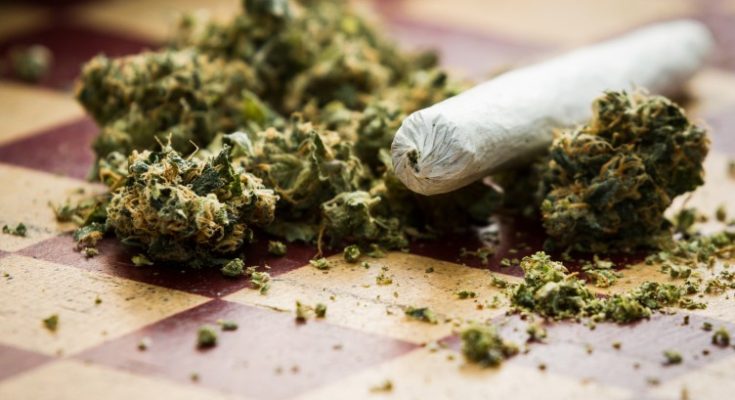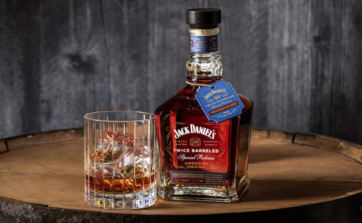Players say they smoke after games, after practice and throughout the season. Can they convince leagues and lawmakers of the positives of pot?
Cannabis is the perfect medicine for athletes,” says retired NFL offensive lineman Eben Britton over the phone, stating matter-of-factly what’s still, generally, considered taboo. (In the world of modern cannabis advocacy, you’re never talking about “weed,” “pot,” “marijuana,” or [insert slang term here]. It’s cannabis.)
“This is not some back-alley street drug,” he continues. “It’s a medicinal herb that provides the only potential solution to both concussions/CTE (chronic traumatic encephalopathy) and the opiate epidemic.”
That hypothesis is the impetus behind Athletes For Care, a new nonprofit of which Britton—alongside 26 other athletes from the NFL, NBA, NHL and UFC—is a founding member. The organization is dedicated to promoting a holistic, alternative approach to athlete wellness, both for those still playing and retirees. Cannabis is but one part of the wellness package—albeit an important one.

Eben Britton in 2014Bob Leverone/Associated Press
Many of the athletes involved, including former NFL players Eugene Monroe and Nate Jackson, already have a history of cannabis advocacy. The goal of Athletes For Care is to allow them to come together and create what Britton calls a “safe space” for athletes interested in alternative medicine, as well as those simply looking for support after leaving the infrastructure of professional sports.
“Meeting all these other athletes who are doing the same thing made me realize, ‘No, I’m not crazy,'” says Riley Cote, a retired NHL player and another founding member.
Cote and his partners at Athletes For Care may not be the minority for long or, depending on who you ask, the vocal face of a silent majority. As marijuana decriminalization becomes increasingly common and the dangers of being a professional athlete get more exposure—particularly in the NFL, where opioid abuse, painkiller abuse and concussion risks frequently grab national headlines—athletes and cannabis have entered a marriage of convenience, if nothing else.
“If your bread and butter is your body, you need to find a sustainable way to keep performing at a high level—I learned that the hard way,” says Cote. The former Philadelphia Flyer says that because he couldn’t use cannabis—his preferred form of pain management—while on the road, he “started falling off track a little bit” with team-supplied painkillers. “If I could have done it the way I wanted,” he adds, “cannabis would have been the way I always managed my pain, sleep and anxiety.”

Riley Cote in 2008Karl B DeBlaker/Associated Press/Associated Press/Associated Press
Plenty of athletes have apparently come to that same conclusion. Britton estimates that a minimum of 50 percent of NFL players use cannabis and says it’s fairly easy not to get caught despite what the omnipresent suspensions for violating the league’s substance-abuse policy would suggest.
“There were guys who I’d smoke with after practice or after games,” Britton says.
The league only tests once a year, randomly during the offseason, and a player needs to fail multiple tests to get suspended. If it were any more strict, Britton says, “half the league would be suspended for drug use.”
“You can smoke as much weed as you want throughout the season—the test is just about ‘protecting the shield.'”
The NFL recently reached out to the NFLPA about studying “the potential use of marijuana as a pain management tool,” per a new report from the Washington Post. (The NFLPA was unavailable to comment on the report but has previously advocated to reform the league’s policy in favor of therapeutic cannabis use.)
Overreliance on painkillers isn’t just an NFL issue, though, as UFC fighter Bas Rutten—another member of Athletes For Care—knows all too well. “They just destroyed my life,” he says of the up to eight OxyContin he was ingesting a day. “I almost fell asleep behind the wheel. My blood pressure was up, I was sweating at night…finally, I said, ‘I gotta stop this stuff.'”

Richard Vogel/Associated Press
He started consuming cannabis, specifically cannabidiols or CBDs—in other words, the non-THC, non-psychoactive part of cannabis. Rutten was an instant convert and estimates that 80 percent of UFC fighters use cannabis to recuperate. “There’s nothing worse than getting injured and taking a pain pill,” he says now. “It actually makes things worse.”
Anecdotally, cannabis sounds like a miracle drug. The problem is corroborating that with science, given that the plant’s Schedule 1 status makes it difficult to research in a lab-controlled setting. Athletes For Care has partnered with The Lambert Center for the Study of Medicinal Cannabis and Hemp at Thomas Jefferson University to advocate for that kind of research. ()









